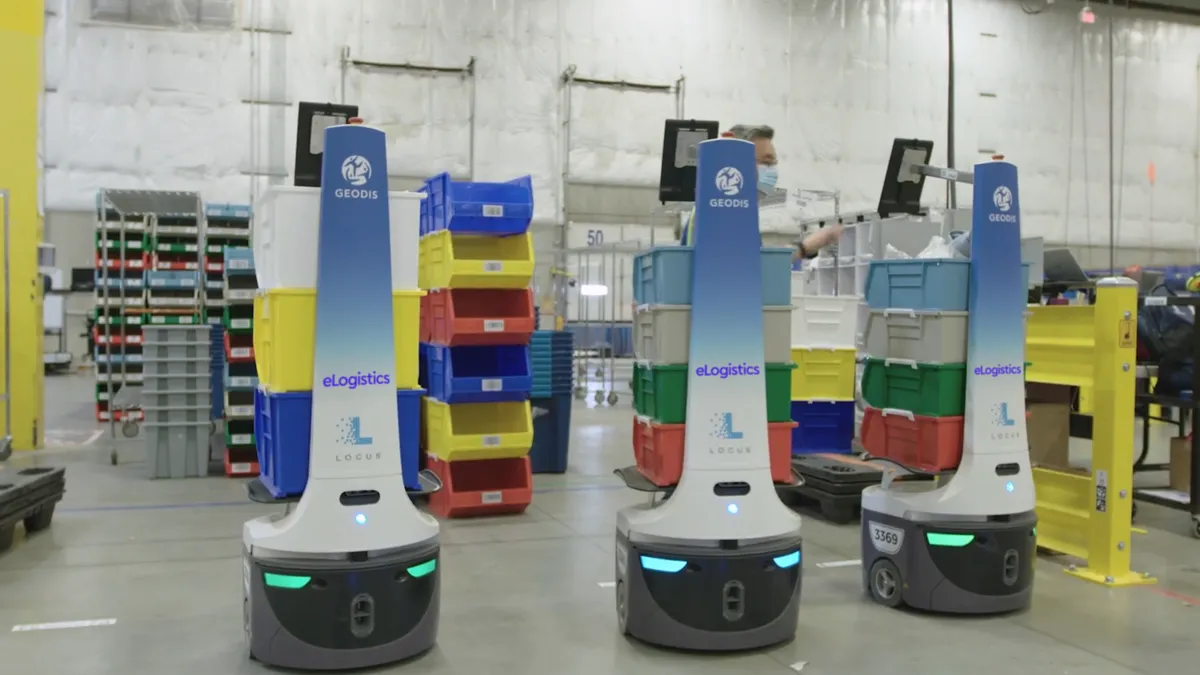Dive Brief:
- Geodis is launching a service that will provide e-commerce fulfillment solutions to direct-to-consumer brands in the United States, joining a crowded field of companies looking to serve new and emerging retailers with logistics offerings, according to a company press release.
- The service will allow brands to store their inventory and have orders fulfilled from four Geodis eLogistics fulfillment hubs across the country, the company said. The four locations will be able to provide two-day delivery to 91% of the continental U.S. with "standard shipping services," it said.
- One of the hubs in Plainfield, Indiana, is already open. Two hubs in California and New Jersey are expected to be ready for peak season this year, and the final location in Tennessee is set to open by Q1 2022, but the exact location for these three was not provided.
Dive Insight:
As e-commerce and direct-to-consumer brands grow in importance within the retail landscape, their ability to set up fulfillment operations has become increasingly vital to their success. And logistics companies like Geodis have stepped in with a variety of offerings to meet the need.
A DTC operation will require different skills in a warehouse than a wholesale operation that sells to other retailers. A wholesale operation requires the movement of large pallet-sized orders while a DTC operation is more about small, individual picks.
In 2019, UPS launched its e-commerce fulfillment platform for small- and medium-sized businesses that sold on marketplaces like Amazon and eBay. Amazon has its Fulfilled by Amazon service that allows third-party companies to store and ship from Amazon fulfillment centers. And Walmart launched a similar service last year.
Shopify and eBay are also offering fulfillment solutions. And startups like Flexe, Shipbob and Flowspace have started to offer up warehousing space and technology solutions for companies in need of e-commerce fulfillment.
It is fairly common for DTC brands to outsource their fulfillment operations to a third party in their early days of their business, according to a report released last year from McKinsey. This helps to "guarantee quality, speed, and the flexibility to scale operations up or down as needed."














